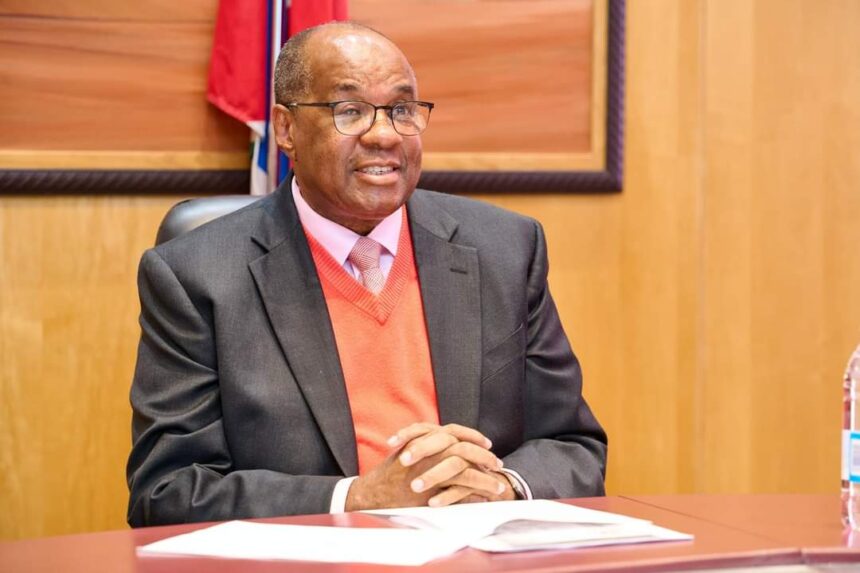Minister of agriculture Calle Schlettwein this week officiated the launch of the pilot electronic voucher (e-voucher) system for the Build Back Better urban agriculture programme. The e-voucher system is Namibia’s first digital agriculture solution for enabling market access to agricultural products and improving the distribution of quality agricultural inputs to smallholder farmers through the involvement of various agro-dealers.
“The e-voucher system is piloted under the project: Strengthening Namibia’s food systems to recover from emergencies and disease-related shocks through the Build Back Better (BBB) programme,” said Schlettwein.
The BBB programme is initiated to counter the disruptions to food and nutrition supply chains occasioned by Covid-19, particularly in urban and peri-urban areas.
The programme is a technical collaboration with the United Nations Development Programme (UNDP), and the government of Japan who injected about US$1 million for this pilot project.
The agriculture minister added that the groundbreaking pilot project is being implemented in collaboration with the four municipalities of Windhoek, Rundu Town Council, Swakopmund and Mariental.
He stated the participating local authorities would allocate land and basic infrastructure for the greenhouses and horticulture activities under the programme. According to him, small-scale horticulturalists, poultry farmers, women, youth and cooperatives would participate in the programme through a selection process.
“Unlike the paper-based manual system, which suffers from challenges related to poor traceability of beneficiaries, lack of real-time data, incomplete beneficiary transaction records and lengthy turnaround time for the services to reach the targeted beneficiaries, the e-voucher digital solution comes with distinct advantages,” Schlettwein noted.
The objectives of the BBB urban agriculture programme and its e-voucher digital solution are aimed at strengthening Namibian food systems to recover from the disruptions presented by the pandemic on agricultural supply chains, fortifying the system resilience to future shocks and in the process making progress towards national food self-sufficiency and sovereignty.
Schlettwein stated the programme is targeted at improving the livelihoods of informal vendors and small-scale farmers in urban and peri-urban areas through income generation and basic nutritional needs, and more importantly, enhancing efficiency in the delivery of farming inputs to targeted farmers in real-time.
Agriculture is one of Namibia’s most crucial sectors with the majority of Namibia’s population depending directly or indirectly on the agricultural sector for their livelihoods.
On the same occasion, Alka Bhatia, UNDP resident representative to Namibia, stated the electronic voucher input scheme under this project will issue horticulture and poultry farming input grants through the Environment Investment Fund to about 40 qualifying beneficiaries. These beneficiaries are small scale producers including women and youth aged between (19 and 59 years) and persons living with disabilities from the four regions.
The contributory grants are valued at N$2.4 million and will be issued as e-vouchers that will be linked to the private sector, particularly agri-suppliers or retailers, namely Kaap Agri, Pupkewitz Megabuild, and Agra.
Bhatia said beneficiaries operating within the horticulture and poultry value chains will be allowed to access agriculture inputs for their businesses from the respective suppliers.
“The e-voucher system offers strong potential for driving economic growth and rising income through efficient input market systems and increased agricultural production. The focus of this digital solution is to empower the beneficiaries of government grants, which are designed for the most vulnerable in Namibia,” said Bhatia.
She added this innovative digital granting system will improve access in the procurement of needed supplies to upscale production capacity for more sustainable livelihood improvement.


